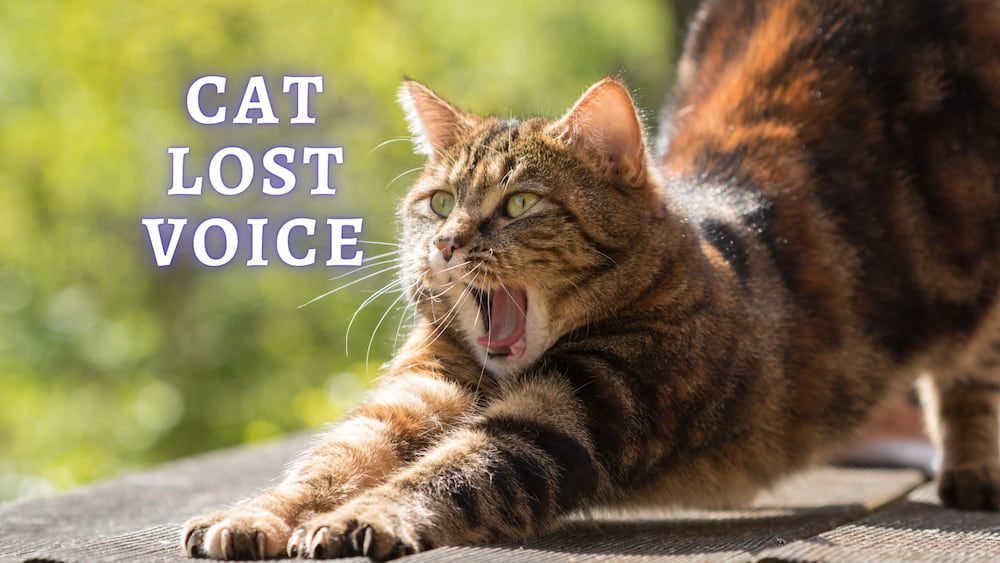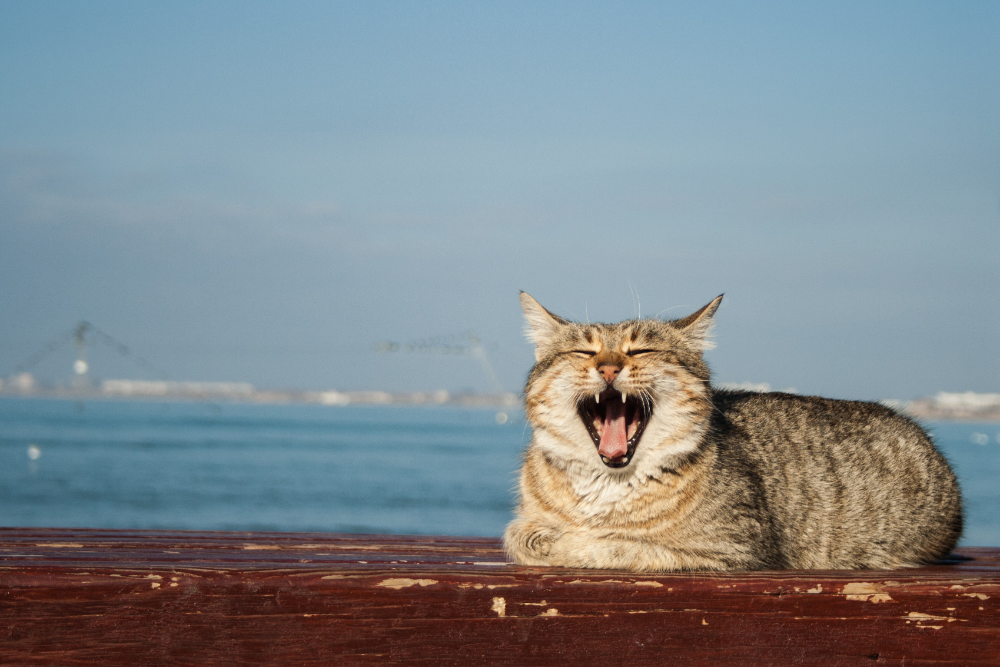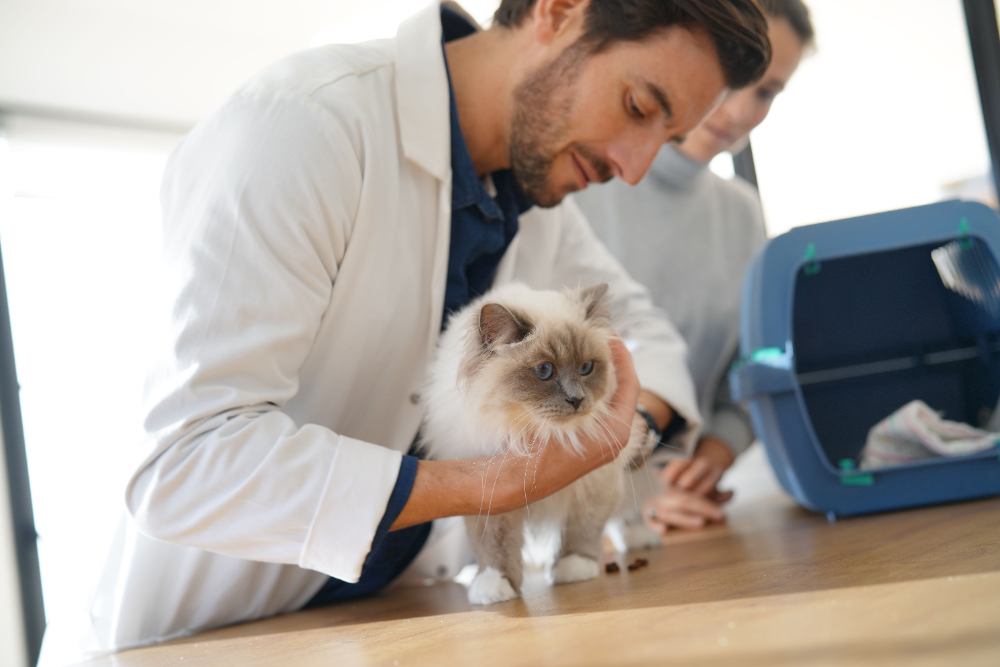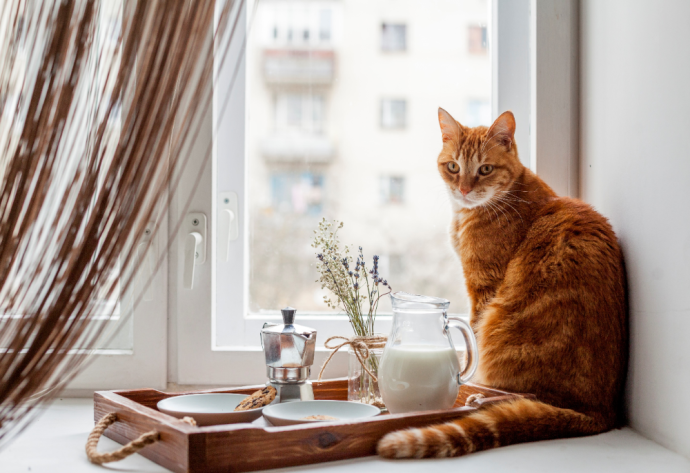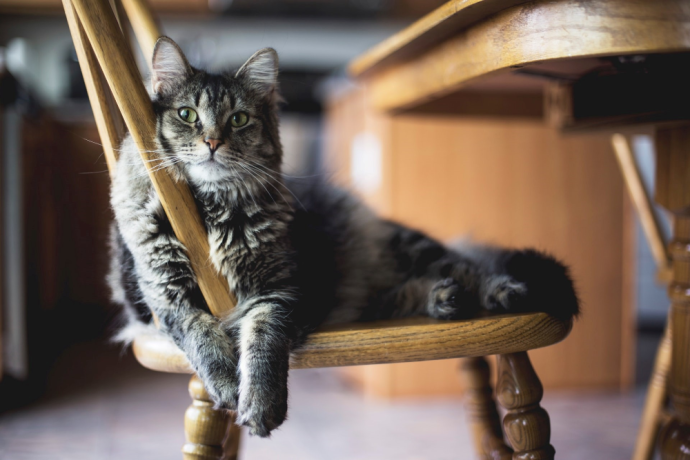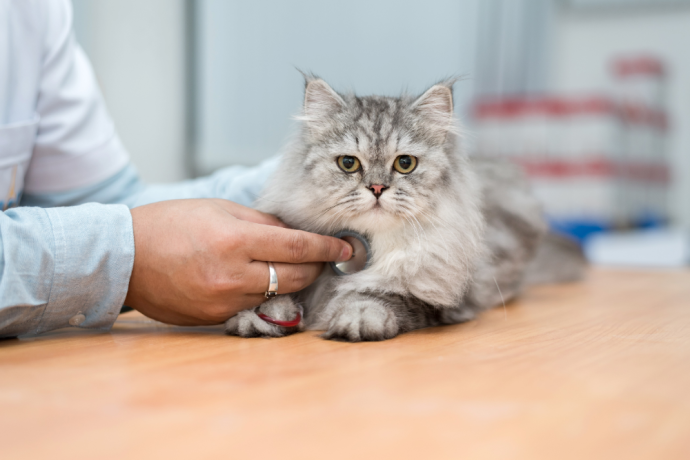My Cat Lost its Voice: Can Cats get Laryngitis? (Vet Advice)
Written by:
Author: Dr. Linda Simon
Dr. Linda Simon is a veterinary surgeon working with seven years of experience. She is a fellow of the British Veterinary Association and specializing in animal medicine. Also, she has been the Woman magazine resident vet for the past two years and writes a regular column for them, focusing on pets and their health.
View all 30 articlesLearn about our editorial process and veterinary review board.
Viewed: 23554
Updated on: 06/09/2023
While we are all familiar with the feeling of going hoarse while we have a cold or perhaps after a night of partying too hard, not everyone knows that, just like us, our cats can go hoarse and ‘lose their meow’ too. It is not always obvious why this has happened, and we need to become detectives to discover what is going on. There are several potential causes and it is vital to bring your cat to the vet if they have become hoarse as sometimes it is a sign of a serious underlying issue. The majority of the time, however, there is a benign cause and cats will be back meowing away in just a few weeks.
What about a weak meow or complete voice loss?
Sometimes, rather than going hoarse, cats will develop an abnormal or a weak meow. This may precede them going completely mute, or they may never go on to entirely lose their meow. Typically, a weak meow or a total loss of voice has the same causes as a cat going hoarse.
Causes of a Voice change in Cats
1. Over Use
This is most often seen in females who are continually calling because they are in a season, or heat, but can be seen in any cat who has recently been very vocal. Perhaps they have been left in the vets or in a boarding facility and are voicing their indignation, or maybe there is a new cat that has moved in next door and they are attempting to communicate with them. These kitties rarely lose their meow but can become slightly hoarse. Once they settle down and stay quiet for a while, their symptoms should resolve. Your feline friend will otherwise be well in themselves and acting as usual.
2. Laryngitis
An inflamed cat’s larynx can lead to signs including difficulty swallowing and a hoarse meow. There can be many causes, including irritation from inhaled fumes or smoke and infections. There can be some pain involved and cats typically feel somewhat under the weather. You may find they hide away and eat less than normal.
3. Foreign Body
Cats can sniff up or swallow foreign bodies such as blades of grass, fish bones, or grass awns, which can lodge in the throat and make it difficult to meow. Usually, we will see other signs such as retching, bad breath and a reduced appetite.
4. Growths & Tumors
Whether a growth in the throat is benign (non-cancerous) or malignant (cancerous and with the potential to spread around the body), it can interfere with normal vocalization.
They can cause eye or nasal discharge and bad breath, particularly if they invade the mouth and nasal cavities.
However, bear in mind, a cat’s loss of voice is only rarely caused by a cancer.
READ MORE: Why Doesn’t My Cat Purr?
5. Viral and Bacterial Respiratory Infections
Cats are prone to infections such as Cat Flu (also known as a cat cold, it is generally caused by upper respiratory infections such as Calicivirus and Herpesvirus), and they are easily spread from one to another when a cat’s immune system is weak i.e. when young or when there is an underlying health condition.
Your feline friend may also sneeze, cough, and have nasal discharge and runny eyes. This can be secondary to the irritation from a cough and/or a local inflammation.
While a vet will not always confirm that the underlying cause is a cat cold or flu with tests, where necessary, swabs and blood tests can be taken to verify which viral illness is present.
We should use a soft damp cloth on the cat’s face to clean away any discharge and crusting, which eases breathing.
6. Non-respiratory Infections
Certain non-respiratory infections can cause an altered voice, such as the Rabies virus. This viral infection is only present in certain countries and, sadly, those affected need to be euthanized to protect other animals and people.
7. Hyperthyroidism
While not the most common symptom of hyperthyroidism, voice loss is possible. More often, those with an overactive thyroid will exhibit weight loss, diarrhea and an increased appetite. Many will vocalize more, and this can undoubtedly irritate the throat. A simple blood test can check thyroid levels.
8. Laryngeal Paralysis
Dogs are more likely to develop laryngeal paralysis than cats, but cats are not immune to this disorder. The laryngeal cartilages fail to function as they should and fail to open adequately when a cat breathes. To diagnose this condition, vets will view the larynx under light anesthetic to monitor what it does while a cat breathes in and out.
READ MORE: Why does my Cat Yowl at Night
Can a Cat meow so much they lose their Voice?
Yes! Once they rest their voice, it will gradually return to normal. Importantly, these cats should be well in themselves.
What is Laryngitis?
Cat’s laryngitis is an interesting disease that is perhaps under-diagnosed in cats, particularly as they are unable to tell us when they have a sore throat! The term ‘-itis’ means inflammation, and Laryngitis is inflammation of the larynx (voice box). On close examination of the cat’s larynx, we will generally see fluid build-up (edema) of the larynx itself and localized erythema (‘redness’).
If your cat’s breathing is affected or they seem distressed, they require immediate veterinarian care.
Cat laryngitis Symptoms
Cat laryngitis is frequently accompanied by a dry and harsh cough. Some cats may breathe harder and faster, particularly if the Laryngitis is severe. Sometimes, their breathing is noisy, and one can even hear it from a distance! A cat may have a normal meow or their voice may be hoarse or absent.
Common cat laryngitis symptoms can be quite mild, so an owner won’t always notice symptoms.
How is Cat Laryngitis Diagnosed?
Vets can generally make a diagnosis from taking a thorough history and performing their physical exam. Less commonly, an airway exam is advised.
READ MORE: Why Does My Cat Stick Tongue Out?
How is laryngitis treated?
Typical cat laryngitis treatment includes anti-inflammatories, a mild painkiller, air humidifiers, the feeding of soft food, and antibiotics if a secondary bacterial infection is present. Any runny nose or eyes can be gently cleaned up with a soft damp cloth.
If a cat is very poorly they may be hospitalized while they recover.
Are there any natural remedies for laryngitis?
We can give a teaspoon of honey once or twice a day to reduce inflammation in the throat.
If your vet detects congestion or a runny nose, steaming will usually be advised.
Can you do anything to prevent laryngitis?
We can aim to prevent respiratory infections by keeping our cats away from infected felines and by keeping them up to date with their vaccinations.
Support your cat’s immune system by offering an improved diet, like one made with fresh and natural ingredients.
READ MORE: Why is my Cat always Hungry
Causes Laryngitis in Cats
A number of things can lead to inflammation of the larynx ranging from infections to irritants, and it can also occur secondary to intubation after a general anesthetic.
We will not always find an underlying cause for this inflammation of your cat’s voicebox.
Does Laryngitis in Cats go away?
Yes, Laryngitis is not a permanent disorder and will resolve with time. How long this takes depends on what has caused Laryngitis and how severe it is, but it’s usually a matter of weeks.
READ MORE: How to get rid of Cat Urine Smell in house
FAQ
Why has my cat lost its voice?
While there are a few things that can affect your cat’s ability to meow temporarily, the most common underlying cause would be laryngitis, but it also occurs secondary to infectious diseases or over use.
How do you treat laryngitis in cats?
Cat’s laryngitis (an inflammation of your kitty’s larynx) generally settles down over time but the provision of medicine such as anti-inflammatories and pain relief can help.
Why does my cat meow but no sound comes out?
When a cat loses their voice, they try to vocalize but their meow is absent. causes can include infections and over use.
Why is my cat’s meow weak?
A ‘weak’ meow may be quiet or hoarse and can occur alongside a sore throat. As with an absent meow, there can be many reasons for this change in voice such as overuse or infection like a cat cold.
READ MORE: Is My Cat in Pain? (Vet Advice)
 Cat Veterinary Tips Cat Allergies: Symptoms, Causes, Testing, Treatment, and Prevention (Vet Advice)
Cat Veterinary Tips Cat Allergies: Symptoms, Causes, Testing, Treatment, and Prevention (Vet Advice) - 340
- 0
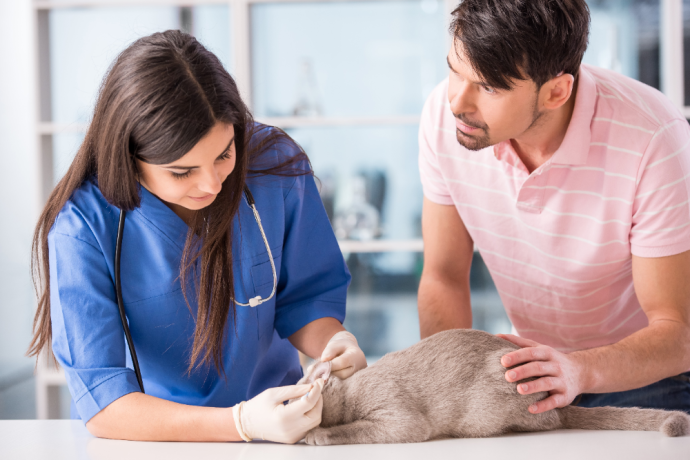 Cat Veterinary Tips Cat Fleas and Ticks: How to get rid of Fleas on Cats? (Vet Advice)
Cat Veterinary Tips Cat Fleas and Ticks: How to get rid of Fleas on Cats? (Vet Advice) - 185
- 0
 Cat Care Why Does My Cat Attack My Legs? 10 Reasons Why and What To Do About It (Vet-Approved Advice)
Cat Care Why Does My Cat Attack My Legs? 10 Reasons Why and What To Do About It (Vet-Approved Advice) - 46013
- 21
 Cat Veterinary Tips Cat Stomach Gurgling: Vet Advice on Why is Your Cat Stomach Gurgling?
Cat Veterinary Tips Cat Stomach Gurgling: Vet Advice on Why is Your Cat Stomach Gurgling? - 36469
- 4
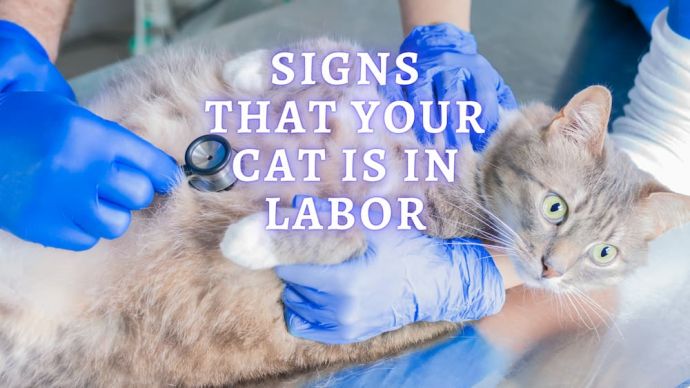 Cat Veterinary Tips Signs That Your Cat is in Labor: How to tell if a Cat is Pregnant?
Cat Veterinary Tips Signs That Your Cat is in Labor: How to tell if a Cat is Pregnant? - 15122
- 1









